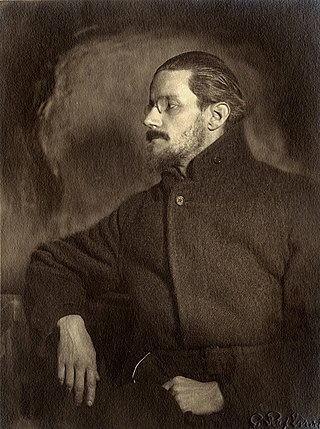
James Augustine Aloysius Joyce was an Irish novelist, poet and literary critic. He contributed to the modernist avant-garde movement and is regarded as one of the most influential and important writers of the 20th century. Joyce's novel Ulysses (1922) is a landmark in which the episodes of Homer's Odyssey are paralleled in a variety of literary styles, particularly stream of consciousness. Other well-known works are the short-story collection Dubliners (1914), and the novels A Portrait of the Artist as a Young Man (1916) and Finnegans Wake (1939). His other writings include three books of poetry, a play, letters, and occasional journalism.

Oscar Fingal O'Fflahertie Wills Wilde was an Irish poet and playwright. After writing in different forms throughout the 1880s, he became one of the most popular playwrights in London in the early 1890s. He is best remembered for his epigrams and plays, his novel The Picture of Dorian Gray, and his criminal conviction for gross indecency for homosexual acts.
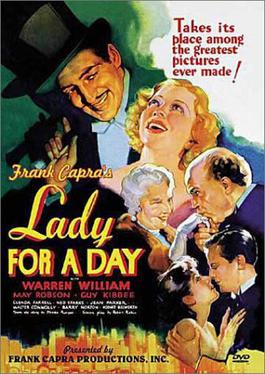
Lady for a Day is a 1933 American pre-Code comedy-drama film directed by Frank Capra. The screenplay by Robert Riskin is based on the 1929 short story "Madame La Gimp" by Damon Runyon. It was the first film for which Capra received an Academy Award nomination for Best Director and the first Columbia Pictures release to be nominated for Best Picture. Capra also directed its 1961 remake, Pocketful of Miracles.

Malus is a genus of about 32–57 species of small deciduous trees or shrubs in the family Rosaceae, including the domesticated orchard apple, crab apples and wild apples.
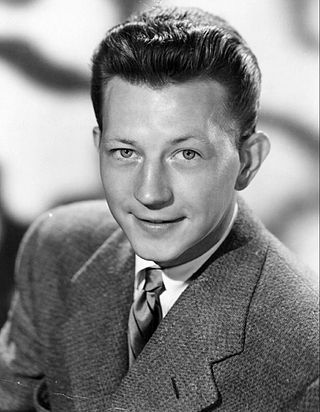
Donald David Dixon Ronald O'Connor was an American dancer, singer and actor. He came to fame in a series of films in which he co-starred, in succession, with Gloria Jean, Peggy Ryan, and Francis the Talking Mule.
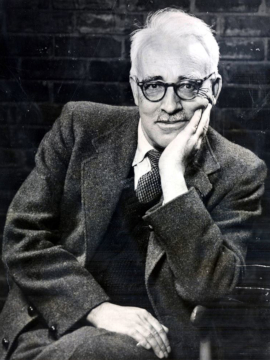
Frank O'Connor was an Irish author and translator. He wrote poetry, dramatic works, memoirs, journalistic columns and features on aspects of Irish culture and history, criticism, long and short fiction, biography, and travel books. He is most widely known for his more than 150 short stories and for his memoirs. The Frank O'Connor International Short Story Award was named in his honour.

Dubliners is a collection of fifteen short stories by James Joyce, first published in 1914. It presents a naturalistic depiction of Irish middle class life in and around Dublin in the early years of the 20th century.
The Cuala Press was an Irish private press set up in 1908 by Elizabeth Yeats with support from her brother William Butler Yeats that played an important role in the Celtic Revival of the early 20th century. Originally Dun Emer Press, from 1908 until the late 1940s it functioned as Cuala Press, publicising the works of such writers as Yeats, Lady Gregory, Colum, Synge, and Gogarty.
Events from the year 1944 in Ireland.

The Kenyon Review is a literary magazine based in Gambier, Ohio, US, home of Kenyon College. The Review was founded in 1939 by John Crowe Ransom, critic and professor of English at Kenyon College, who served as its editor until 1959. The Review has published early works by generations of important writers, including Robert Penn Warren, Ford Madox Ford, Robert Lowell, Delmore Schwartz, Flannery O'Connor, Boris Pasternak, Bertolt Brecht, Peter Taylor, Dylan Thomas, Anthony Hecht, Maya Angelou, Rita Dove, Derek Walcott, Thomas Pynchon, Don Delillo, Woody Allen, Louise Erdrich, William Empson, Linda Gregg, Mark Van Doren, Kenneth Burke, and Ha Jin.
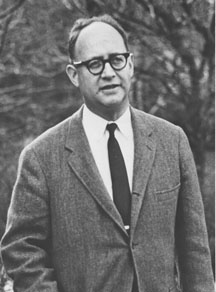
Richard David Ellmann, FBA was an American literary critic and biographer of the Irish writers James Joyce, Oscar Wilde, and William Butler Yeats. He won the U.S. National Book Award for Nonfiction for James Joyce (1959), one of the most acclaimed literary biographies of the 20th century. Its 1982 revised edition won James Tait Black Memorial Prize. Ellmann was a liberal humanist, and his academic work focuses on the major modernist writers of the 20th century.

"Think different" is an advertising slogan used from 1997 to 2002 by Apple Computer, Inc., now named Apple Inc. The campaign was created by the Los Angeles office of advertising agency TBWA\Chiat\Day. The slogan has been widely taken as a response to the IBM slogan "Think". It was used in a television advertisement, several print advertisements, and several TV promos for Apple products.

John Richard Lomax was an English guitarist and singer-songwriter. He is best known for his association with George Harrison, who produced Lomax's recordings for the Beatles' Apple record label in the late 1960s.
The Countess Cathleen is a verse drama by William Butler Yeats in blank verse. It was dedicated to Maud Gonne, the object of his affections for many years.

Follow the Boys also known as Three Cheers for the Boys is a 1944 musical film made by Universal Pictures during World War II as an all-star cast morale booster to entertain the troops abroad and the civilians at home. The film was directed by A. Edward "Eddie" Sutherland and produced by Charles K. Feldman. The movie stars George Raft and Vera Zorina and features Grace McDonald, Charles Grapewin, Regis Toomey and George Macready. At one point in the film, Orson Welles saws Marlene Dietrich in half during a magic show. W.C. Fields, in his first movie since 1941, performs a classic pool-playing presentation he first developed in vaudeville four decades earlier in 1903.

The Duchess of Padua is a five-act tragedy by Oscar Wilde, set in Padua and written in blank verse. It was written for the actress Mary Anderson in early 1883 while Wilde was in Paris. After she turned it down, it was abandoned until its first performance at the Broadway Theatre in New York City under the title Guido Ferranti on 26 January 1891, where it ran for three weeks. It has been rarely revived or studied.

Malus fusca, with the common names Oregon crabapple and Pacific crabapple, is a species of crabapple native to western North America.
Oscar Wilde's life and death have generated numerous biographies.

Collected Stories is a collection of 67 of Frank O'Connor's best-known short stories, first published in 1981.

Bowery to Broadway is a 1944 American film starring Maria Montez, Jack Oakie, and Susanna Foster. Donald O'Connor and Peggy Ryan also had a small specialty act, and it was the only film they were in together where they did not have a name or character.
















